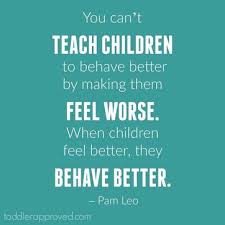Hi Families,
I hope you enjoyed reading the first parenting tip by Michael Grose and found this helpful.
Today we continue on with parenting Tip Number Two which looks at teaching kids to behave well – something as parents we all want our children to learn.
Happy reading,
Ms Jodie
BIG FIVE Parenting Skill #2: Teaching kids to behave well

Elephants are the second of the BIG FIVE wild animals.
They’re valued for their ivory and they’re impossible to ignore, when you come across them (usually in herds of up to 30).
They are big and so impressive!
Similarly, kids’ behaviour is impossible to ignore… particularly if it’s poor behaviour. Parents generally feel badly, when
their kids behave poorly and family-life can be hard to enjoy. Now I’m talking about occasional poor behaviour
such as when kids are tired & whingy; or developmental poor behaviour where kids are wearing L plates and test out your
boundaries, as well as your patience. That’s part of being a kid!
Generally, it’s the job of parents to make our kids social and safe. That means, they need to learn to behave well (most of the
time) around others, or at least they try to. Learning to behave well takes time for some kids so you have to work harder with
some kids than others.
Effective parents understand that they need to be the bad guy at times, and they have a range of strategies at their disposal
to teach kids to behave well.
Here are five practical ways to teach your kids to behave well:
1. Teach kids good manners: Manners is respect in action, and guides kids into appropriate responses in social
situations.
2. Catch kids doing the right thing: Most kids want to please their parents so make sure your face lights up and your
voice gets excited when they’ve behaved well.
3. Be a good role model: Kids learn what they live! Most social learning occurs through modelling so make sure your
kids hear you speak and act in appropriate ways when you interact with them and others.
4. Practise social behaviours at home: Want kids to behave well in a restaurant? Then you need to practise social
eating habits around the kitchen table. The same principle applies for a range of other social behaviours.
5. Use consequences when kids behave poorly: The link between children’s rights & their social responsibilities
is reinforced when parents implement (or display a willingness) to put a respectful, reasonable and related
consequence into action. Less talk and more action is the key here!
Okay, teaching kids to behave well is actually a range of skills, rather than just one skill. I thought it was so fundamental to
effective parenting that I gave it a category on its own.




